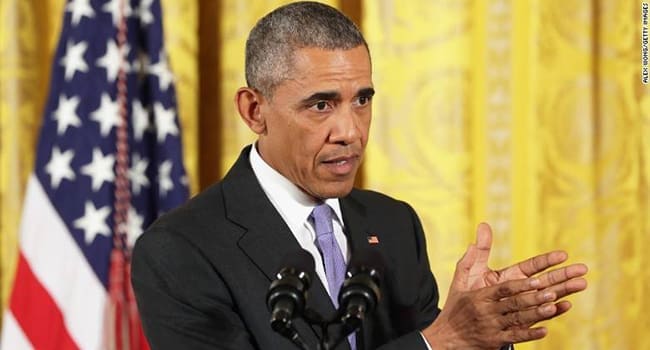 When American presidents retire, they’re supposed to exit the national stage. Barack Obama may have other ideas.
When American presidents retire, they’re supposed to exit the national stage. Barack Obama may have other ideas.
Republican presidents – in particular, Gerald Ford, Ronald Reagan and the two George Bushes – have kept particularly low profiles. They wrote their memoirs, dedicated their presidential libraries, but beyond the occasional speech or in-depth interview, retreated into a quiet retirement.
Democratic presidents – Jimmy Carter and Bill Clinton – have been more active, engaging in all sorts of do-good activities. In Clinton’s case, that also proved to be particularly financially rewarding.
Obama may be the exception to the rule. He’s already indicated that he and his family will stay in Washington, D.C., for the foreseeable future. He’s also strongly signalled that he intends to remain engaged in national politics and may emerge as a vocal critic of the administration of president-elect Donald Trump.
There are a number of reasons Obama may stay engaged – and the decision carries significant consequences. First, Obama is still relatively young. While it’s unlikely he would seek another elected office, he’s been touted as a U.S. Supreme Court judge or even secretary general of the United Nations. Both eventualities are long shots but can’t be ruled out.
There’s also the possibility that his wife, Michelle Obama, might seek elected office. That prospect generated excitement in the Democratic Party, even though Michelle Obama hasn’t given any indication she wants to purse a political career. Besides, being the wife of a popular Democratic president is no assurance of political success. The last time the Democrats followed that strategy, it didn’t work out very well.
The most likely reason Obama has a vested interest in staying on the national stage is to defend the legacy of his administration. Unlike past presidencies, the Obama administration didn’t produce a substantial legislative heritage. Outside of the Patient Protection and Affordable Care Act, better known as ObamaCare, not one significant, enduring piece of legislation was produced by the Obama presidency. ObamaCare is going to be extensively revised and, while portions will survive, what’s likely to emerge will have little resemblance to the original legislation. Its status as a legacy of Obama is in doubt.
Internationally, no significant treaty was ratified by the Senate during Obama’s tenure. The Iranian nuclear agreement and the Paris climate accord were accepted by the administration without seeking the consent or ratification of the Senate. Many of the initiatives of the Obama government were carried out through executive orders and administrative rule-making. While such decisions can’t necessarily be revoked overnight, neither do they have the permanence or longevity of congressional authorization.
In the determined hands of the Trump administration, much of the legacy of the Obama presidency may end up on the cutting room floor. Staying on the national stage may be the only way Obama can preserve any significant legacy of his eight years as president.
That decision may have a significant impact on the Democratic Party’s ability to craft a new message in future elections. One of the peculiar features of his presidency was that Obama averaged a 48 percent approval rating, while an average of 76 percent of Americans disapproved of the country’s direction. That means only about 24 percent of the country, on average, approved of his policies. A gap of 24 percentage points between his approval rating as a president and the approval of his policies is unprecedented.
That gap proved to be a significant challenge for the presidential campaign of Hillary Clinton. The campaign had to embrace Obama and his Rainbow Coalition in order to win the election, while keeping its distance from his unpopular policies. That may be why the Clinton campaign focused so much on attacking and demonizing Trump.
The Democratic Party will have a similar problem as it prepares to contest the 2018 midterm elections and, even more importantly, the 2020 presidential election. Like the Clinton campaign, it wants to preserve the Obama Rainbow Coalition and leverage it to elect its candidates.
But it needs to keep its distance from the Obama’s less popular policies. That’s going to be harder to do if Obama remains on the national stage vigorously trying to defend and preserve the legacy of his administration.
Joseph Micallef is an historian, best-selling author and, at times, sardonic commentator on world politics.
Joseph is a Troy Media contributor. Why aren’t you?
The views, opinions and positions expressed by columnists and contributors are the author’s alone. They do not inherently or expressly reflect the views, opinions and/or positions of our publication.


